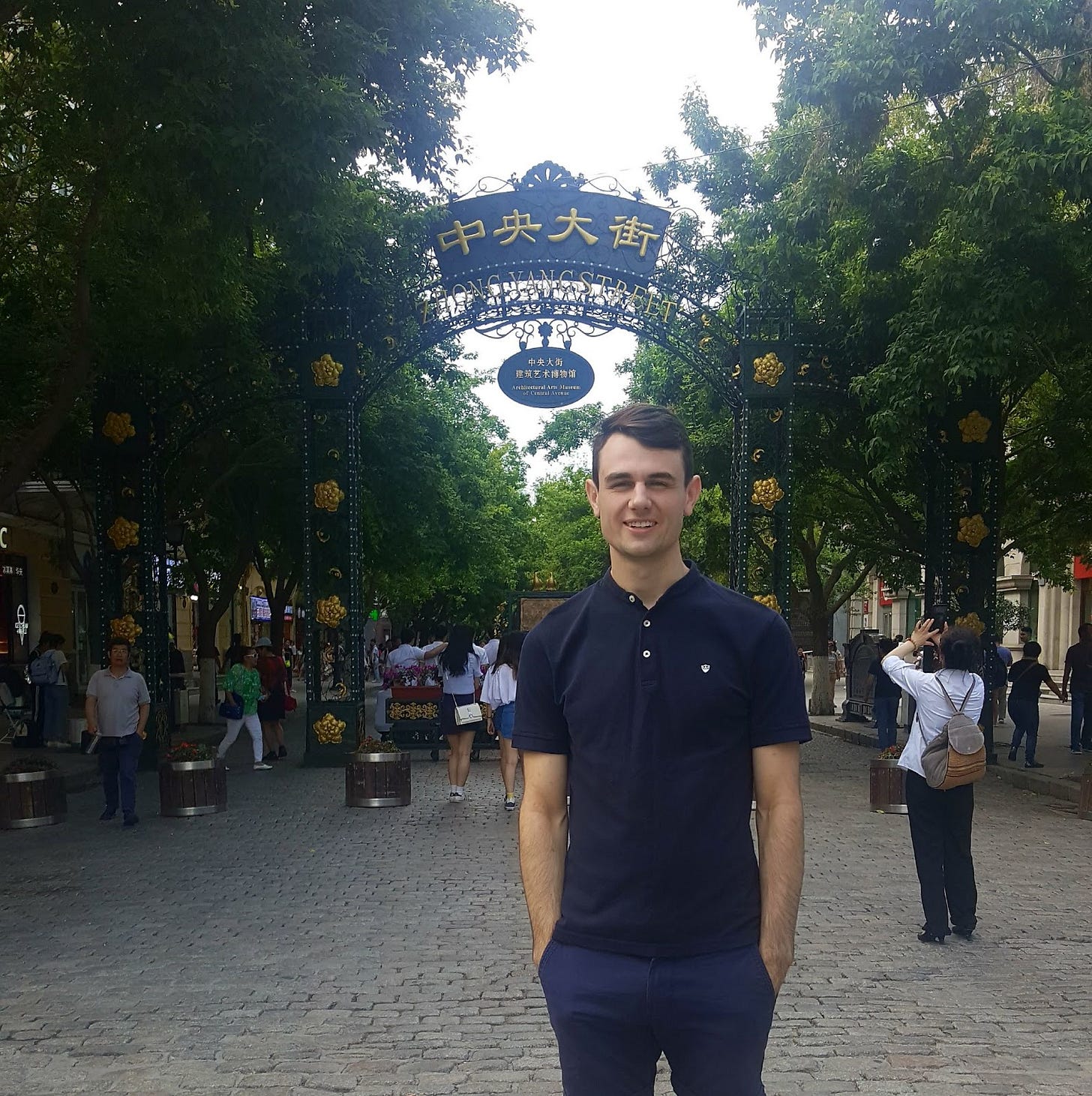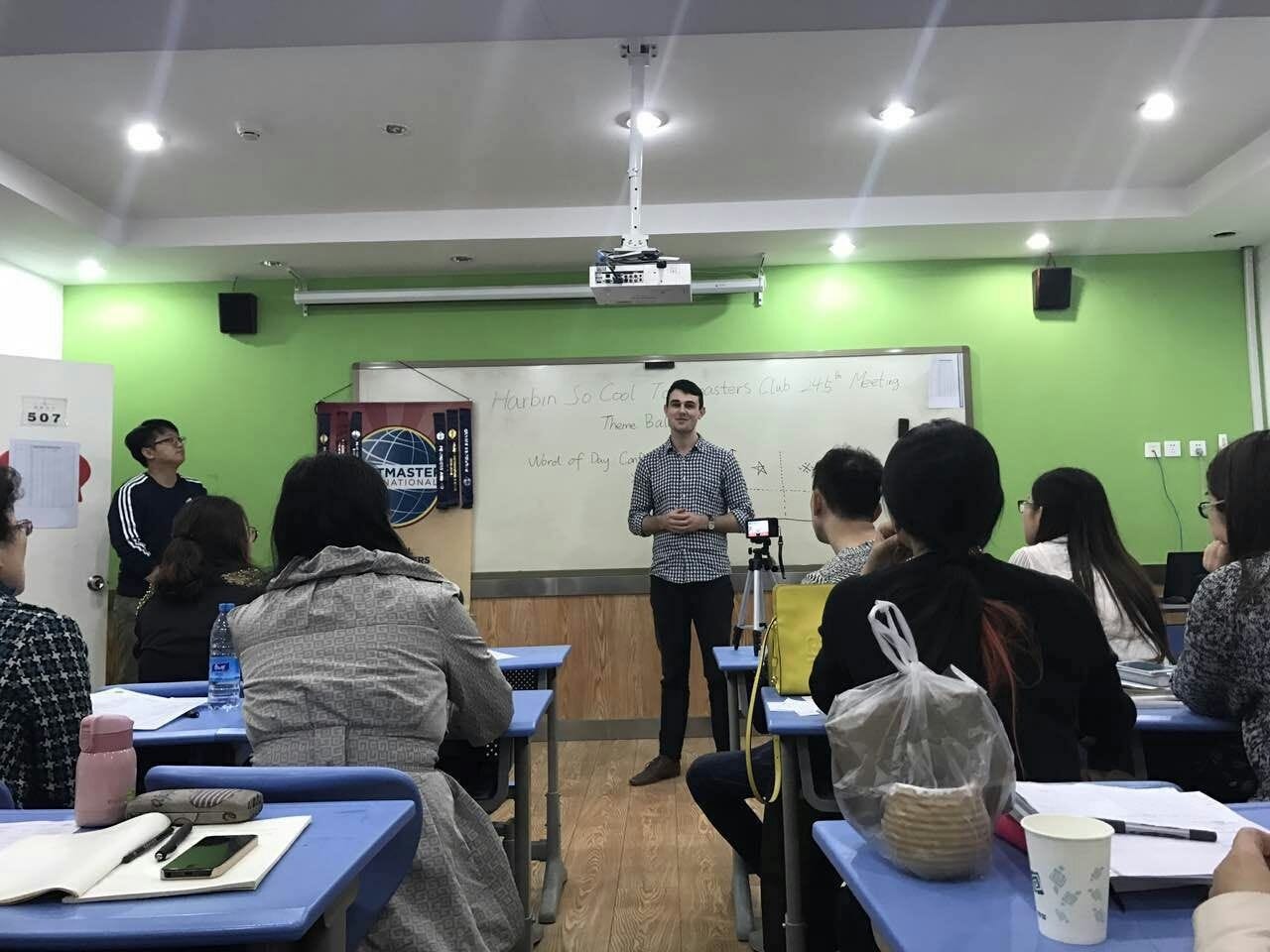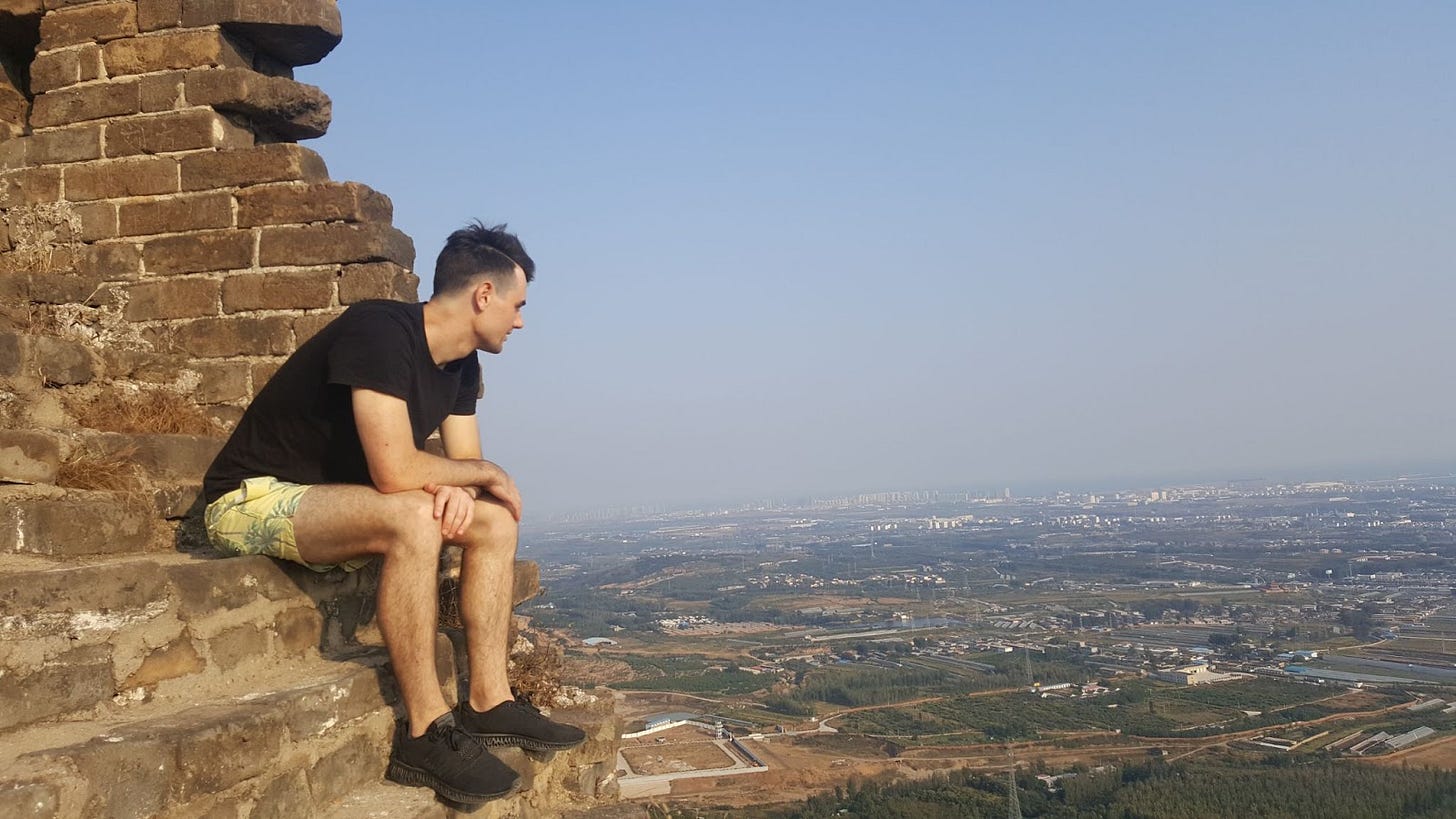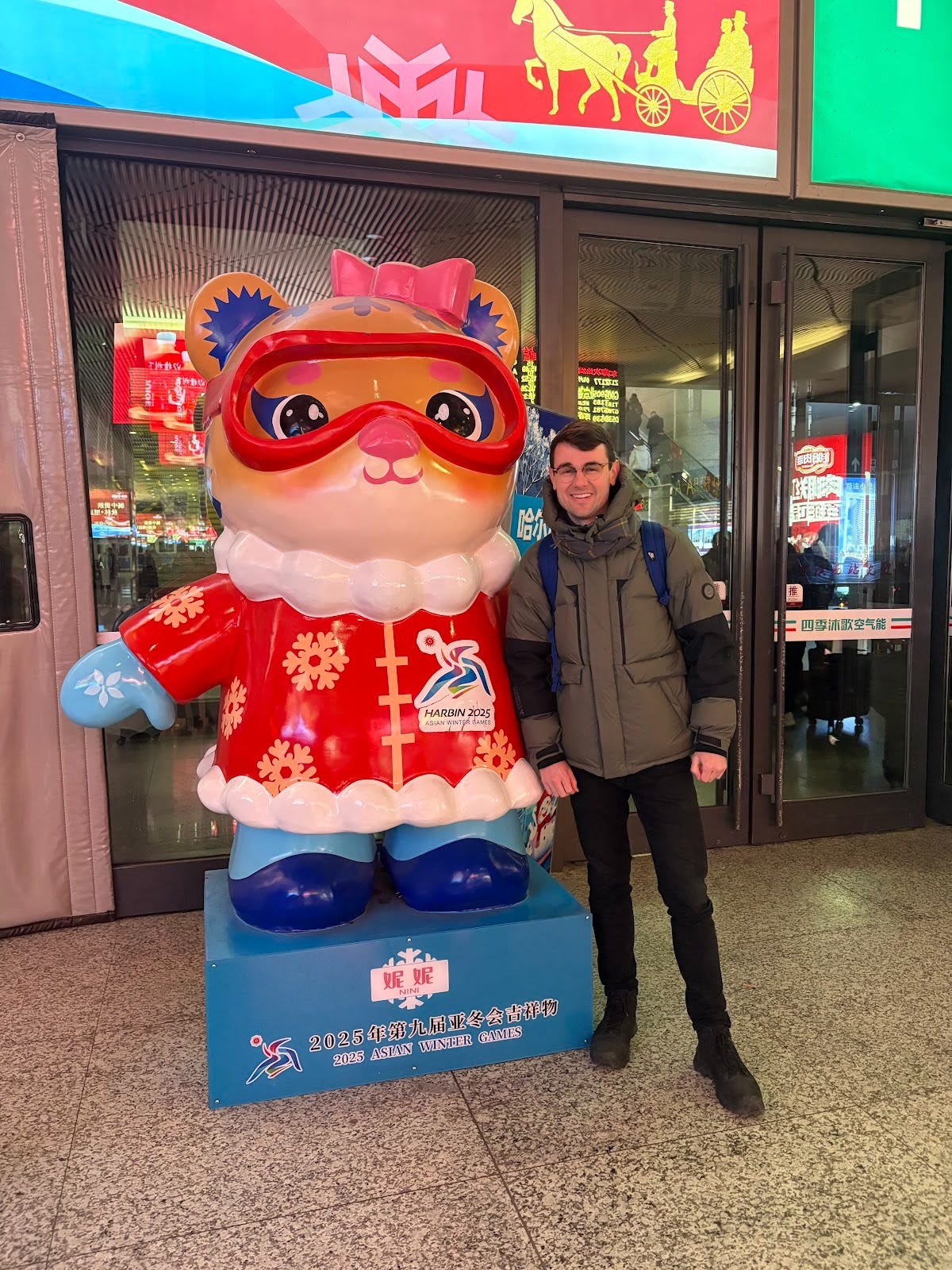Originally from Australia, Elliott moved to China in 2016 and has spent the past decade living between Beijing and Harbin, working across tech, policy, and government. His journey toward mastering Mandarin began with curiosity during a trip to Shanghai and Beijing, and evolved into a deep, long-term commitment to understanding the language and culture.
In this interview, Elliott shares the key decisions that shaped his learning path, the challenges of maintaining immersion, and how living in China’s diverse regions has transformed both his fluency and his worldview.
Can you introduce yourself and tell us a little about your background?
Hi! I’m Elliott, originally from Australia. I moved to China in 2016 and started to learn Mandarin Chinese shortly after. Over the past decade, I’ve worked in tech, policy, and government in Australia and China.
My interest to learn Mandarin came from a visit to the mainland in 2015. I visited Shanghai, then Beijing, and I found the cities quite different to anything I’d seen before in Australia. I think my curiosity got the better of me and I’ve been trying to fill that vacuum ever since.
Can you walk us through your Chinese learning journey from the beginning to where you are now?
I started with a part-time course five mornings a week in Beijing.
My main studies at Peking University were in English, the part-time course was something that I attended separate from my main semester abroad program.
My classmates all spoke English, and there was zero incentive to speak Mandarin outside of class.
Within a few weeks, I figured I needed to get out into a more regional part of the country. I joined a year-long program in Harbin, which was the single best decision I made in learning to speak Mandarin with confidence.
Over the past decade, I’ve rotated between Beijing and Harbin for work, study, and travel opportunities. In total, I’ve invested ~2.5 years into formal language courses/programs in China. That was probably too long—the real learning happens outside the classroom.
What were the biggest challenges you faced as you progressed, especially when transitioning from intermediate to advanced?
Immersion. I struggle to make noticeable improvements to my language living in Beijing or Australia. I need to live in a more remote location without outside influence on my day-to-day.
The challenge would be that in Beijing (and Shanghai is worse in this respect) there are many temptations to fall into bad habits. Terrific professional opportunities, endless networking events, expat circles, and English-speaking friends all mean that immersion (at least for me) wasn’t possible.
What specific methods, tools, or resources helped you the most in achieving fluency?
In the early days, I tried everything. I think you have to. You don’t know what you like/dislike, try everything.
I wasted a lot of time focusing on the wrong things. If I had my time over, I’d try to start speaking with real people as soon as possible.
Something that assisted in the early years was having 1-1 tutor that I saw up to 10 hours a week. My tutor, Liu Laoshi, didn’t speak English. Looking back, It was a constant struggle, but my tutor persisted because I paid her, and I kept going because I was curious and liked the challenge.
How do you create opportunities to practice Mandarin in your daily life?
Good question! I find it challenging to build competency living outside of the environment.
Ideally, I like to have a few friends and contacts that I speak with semi-regularly that don’t speak any English. So when we catch up, it is only in Mandarin. With cultural differences it can be challenging at the start to find common ground. Though, with greater verbal and written fluency on my part, talking about similar interests can become as normal as speaking in your native language. I think it’s important to find a few connections that 1) don’t speak your native language, and 2) have 1-2 strong shared interests.
How has learning Chinese changed your perspective on Chinese-speaking cultures or influenced your personal growth?
At the start of my journey, I didn’t speak to many native speakers. The speed was incredible, and I could barely respond—when I did find the words, they’d already moved onto a different topic.
My classmates from Mongolia, Turkmenistan, South Korea, Russia, etc. could barely speak English. We were conversing in Mandarin within six weeks.
At the start of my journey, I expected to be speaking with ~1.4 native Mandarin speakers, I never expected to spend so much time speaking with other non-native speakers of Mandarin.
Most of my friends from China & the region don’t speak English, so it’s Mandarin or nothing.
What are your favorite aspects of the Chinese language or culture?
I’m currently traveling between Heihe in China’s far north, to Guangzhou and Shenzhen in the south. The trip reminds me how diverse the country is.
In some regions, I speak Mandarin with locals like I would English at home in Australia, in other parts such as Fuzhou and Quanzhou, I have to ‘lean in’ and concentrate. The pronunciation of some tones is different to my language background in China’s north.
Some locals in Fujian have joked that my Mandarin is better than theirs. I reply that they speak two Chinese dialects (Fúzhōuhuà, for example, and Pǔtōnghuà) and I can only manage in one: Mandarin (Pǔtōnghuà)
What advice would you give to learners who are at the intermediate level and want to reach advanced fluency?
It depends a little on how you define intermediate vs. advanced. It is also important to be clear on what aspect of the language you wish to focus on: reading and writing Chinese in a professional work setting, improving daily communication for month-long travel around the country, or rehearsing job interview scenarios in Chinese all require slightly different focuses. Someone can read and write well but would struggle to communicate fluently, others are the reverse. It depends on what success looks like to you.
As a general rule, maximising your time in a Mandarin-speaking environment is a no-brainer. Second to that, immersion has been very successful for me and many others that I know. Immersion isn’t just living in China, you can stay in your home country and read Chinese or learn new words. Being immersed is better summed up as having Chinese as the only language option on the table.
What were the things that surprised you the most in your journey?
I’ve been surprised by how much I continue to learn each day.
Spending the best part of the past decade learning the language, only now I can get around China & the region and engage with locals and visitors from across the country in their own language. The learning never stops, and it’s addictive.
Are there some common misconceptions about the language that you believe are not true?
Early on, I attempted to do what many language learners do: attempt to memorise characters, tones, and grammar rules. Doing this for my first year learning Mandarin led to frustration and disappointment.
Most Mandarin learners think they need to study more. I say you need to speak more (or read more, if that’s your preference). Engaging proactively has many multiples the ROI compared to passive study. You’ll never master the language by mastering a textbook.
Do you have your favorite Chinese idiom or saying you would like to share with us?
条条大路从罗马 (tiáo tiáo dà lù tōng luó mǎ) - the origins of my Chinese name.
The Chinese translation of All Roads Lead To Rome
A friend described this interpretation to me when selecting my Chinese name.
There’s no single right path to success, just a right path for you.
As I enter my second decade of engagement with China, I try to keep this phrase in mind.









Hello Antoine,
Thank you for such a thoughtful and inspiring interview! I really enjoyed reading about Elliott’s journey, it offered so many valuable insights into what it truly takes to learn a language deeply. I especially loved the line, “You’ll never master the language by mastering a textbook.” Such a great reminder to focus on real communication and experience, not just study.